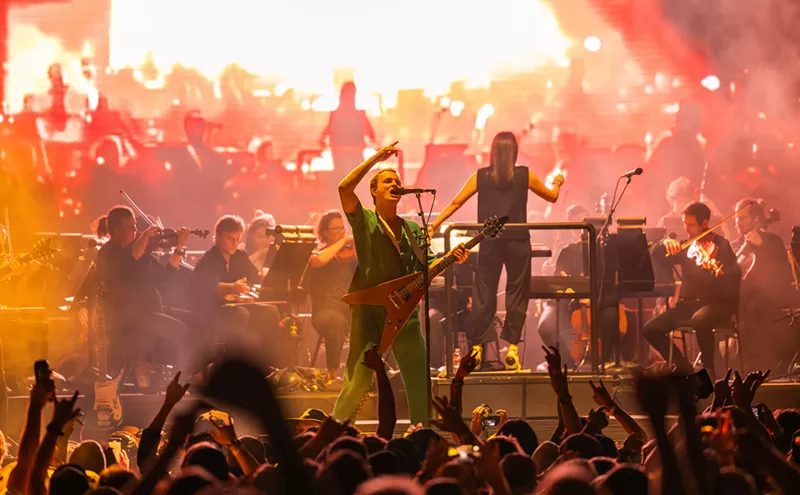What becomes a legend most? Mandela: Long Walk to Freedom offers the biopic's usual reply: legend itself. Bigger, louder, more expensive legend, brought to bear by the best talents and technologies of the day. The name of Nelson Mandela is already shorthand for the things Mandela director Justin Chadwick shows him to be: charismatic, driven, uncompromising, long-suffering, righteous. The casting of Idris Elba in the title role, however, is a welcome surprise. As masculine as they come, Elba's hulking physique replaces the popular image of Mandela as a wispy, benevolent grandpa with one of imposing, youthful vigor. A slow-motion prologue depicts the Xhosa ritual that carried Mandela into manhood; what follows is a hasty business. When he plucks future wife Winnie (Naomie Harris) from a street corner, he is already involved with the African National Congress, the resistance movement (later a political party) formed to challenge white apartheid rule. When police fire on peaceful protesters, killing 69, Mandela and the ANC wage guerrilla war, and the movie locks into a stultifying pattern: rousing speeches alternated with montages of either violence or celebration. Now the mother of two daughters, Winnie doesn't question her husband. "Fight them," she says. "I hate them so much." Her radicalization might have been one of Mandela's finer points, but instead plays out as a series of chaotic arrests and imprisonments, moments Harris manages to make emotionally intelligible despite William Nicholson's thinly drawn script. Elba acquires Mandela's secret look, the inexorable stillness of a man willing to wait history out. In 1963, Mandela was sentenced, along with several fellow ANC members, to life in prison; eventually, the government sought the help of the man they had helped turn into a legend.

Audio By Carbonatix
[
{
"name": "GPT - Billboard - Slot Inline - Content - Labeled - No Desktop",
"component": "23668565",
"insertPoint": "2",
"requiredCountToDisplay": "2"
},{
"name": "STN Player - Float - Mobile Only ",
"component": "23853568",
"insertPoint": "2",
"requiredCountToDisplay": "2"
},{
"name": "Editor Picks",
"component": "17242653",
"insertPoint": "4",
"requiredCountToDisplay": "1"
},{
"name": "Inline Links",
"component": "18838239",
"insertPoint": "8th",
"startingPoint": 8,
"requiredCountToDisplay": "7",
"maxInsertions": 25
},{
"name": "GPT - 2x Rectangles Desktop, Tower on Mobile - Labeled",
"component": "24956856",
"insertPoint": "8th",
"startingPoint": 8,
"requiredCountToDisplay": "7",
"maxInsertions": 25
},{
"name": "Inline Links",
"component": "18838239",
"insertPoint": "8th",
"startingPoint": 12,
"requiredCountToDisplay": "11",
"maxInsertions": 25
},{
"name": "GPT - Leaderboard to Tower - Slot Auto-select - Labeled",
"component": "17676724",
"insertPoint": "8th",
"startingPoint": 12,
"requiredCountToDisplay": "11",
"maxInsertions": 25
}
]







